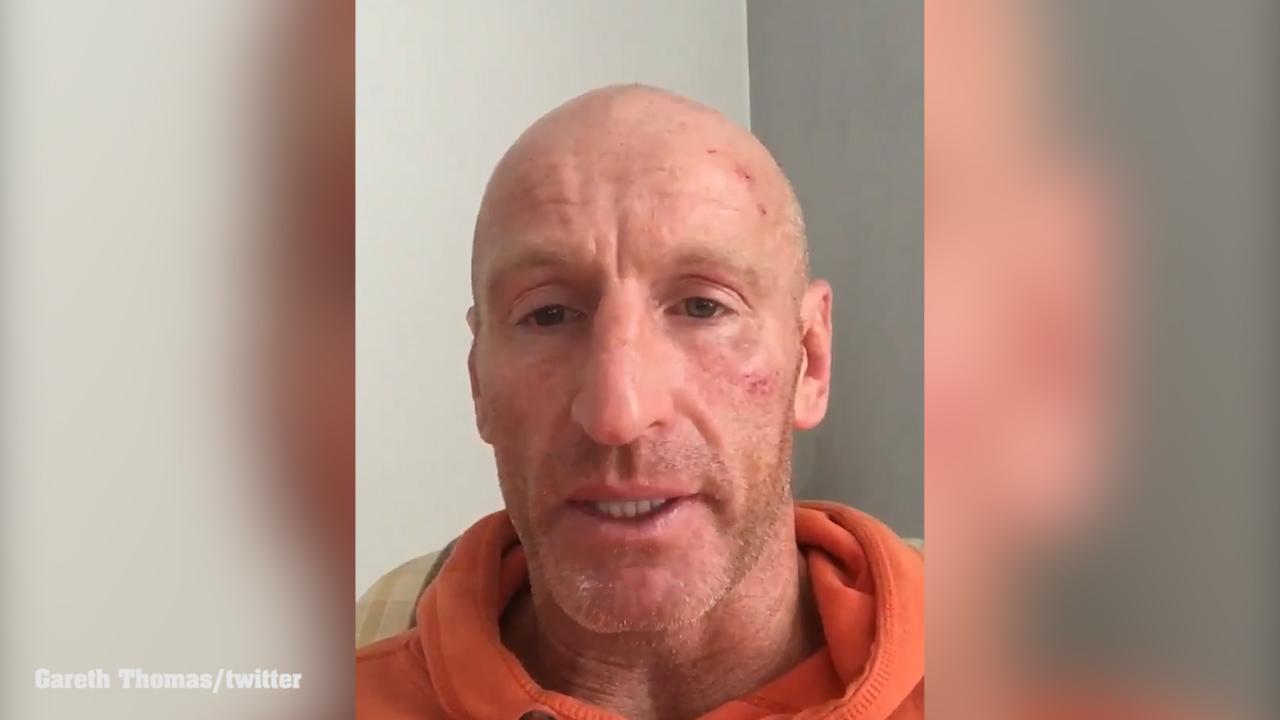Image Credit: [@GarethThomas4/ Twitter]
The rugby community showed support for ex-Welsh player Gareth Thomas following a homophobic attack
Even in 2018, sport still has a lot to do when it comes to tackling homophobia, and, indeed, any type of prejudice, whether that be racial, gendered or coloured. Last week saw former Welsh Rugby Union star Gareth Thomas assaulted on the streets of Cardiff. Thomas, who came out in 2009, took to social media to explain what had happened. In the video that he posted on Twitter, he appeared bruised and said that he had been the victim of this hate crime simply because of his sexuality.
Stating that he wanted to be positive, Thomas thanked the police for the way they dealt with the attack, as well as for the messages of support that he had received from the public, going on to say that “there are an awful lot of people out there who want to hurt us, but unfortunately for them there is a lot more who want to help us heal so this I hope will be a positive message.”
Using restorative justice, Thomas intended to educate both the criminal and wider society about LGBT issues. The attacker, a 16 year old, has since admitted the assault and apologised for his actions. These stories, whilst they may occur less and less, still demonstrates sport’s ongoing need to address homophobic issues. The response to this horrible attack, however, has, as Thomas argued, also had positive outcomes. Indeed, the Welsh, French and New Zealand teams, ahead of their final autumn international matches, wore the rainbow coloured laces in a show of solidarity towards Thomas and all homophobic victims.
And this support did not, naturally, limit itself to the world of rugby. This week sees the return of the Football League’s own initiatives of wearing rainbow laces, which occur every season, where the Football League has a strong partnership with the LGBT charity Stonewall in raising money and awareness.

Despite the increasing effort in the world of football to stamp out homophobia in all of its forms, no current top-flight footballer has come out: ex-Aston Villa midfielder Thomas Hitzlsperger did so after retiring, whilst in the women’s game, there are a plethora of stars, such as Casey Stoney and Hope Powell, who have come out. Traditionally male-dominated sports, such as football, still have a massive homophobia problem, even today, in 2018.
Whilst this homophobic attack on Thomas may have been the work of one teenager, it sheds a lot of light on where we are as a society. The response to these types of incidents shows a society, and sporting industry, increasingly tolerant of LGBT issues and less so of homophobia. Yet, attacks like these are not isolated incidents and should be seen in the context of sport’s ongoing battle with dealing with homophobic issues. Until there is zero tolerance, and no such incidents to report on, these issues will plague sport for some time.
James Felton

